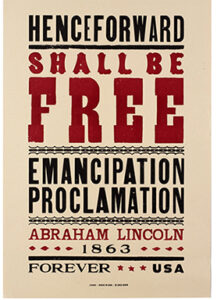(This is section 10 of the World Beyond War white paper A Global Security System: An Alternative to War. Continue to preceding | following section.)

Largely unanticipated change has happened in world history many times before. The ancient institution of slavery was largely abolished within less than a hundred years — though significant new types of slavery can be found hiding in various corners of the earth. In the West, the status of women has improved dramatically in the last hundred years. In the 1950s and 1960s over a hundred nations freed themselves from colonial rule that had lasted centuries. In 1964 legal segregation was overturned in the U.S. In 1993, European nations created the European Union after fighting each other for over a thousand years. Some changes have been wholly unanticipated and have come so suddenly as to be a surprise even to the experts, including the 1989 collapse of the Soviet Union’s Eastern European dictatorships, followed in 1991 by the collapse of the Soviet Union. In 1994 we saw the end of apartheid in South Africa. 2011 saw the “Arab Spring” uprising for democracy catch most experts by surprise.
(Continue to preceding | following section.)

We want to hear from you! (Please share comments below)
How has this led you to think differently about alternatives to war?
What would you add, or change, or question about this?
What can you do to help more people understand about these alternatives to war?
How can you take action to make this alternative to war a reality?
Please share this material widely!
Related posts
See other posts related to “Why we Think a Peace System is Possible”
See full table of contents for A Global Security System: An Alternative to War









One Response
To me, this is the heart of this new initiative: the idea that, just because we’ve always done things a certain way in the past, it doesn’t mean we don’t have the power to choose a different way in the future. The example of the abolition of slavery is particularly powerful. Take, for instance, the story of Harriet Beecher Stowe: how did one person have such a huge influence on that process of change? (I love to think about the moment when her sister-in-law said to her, “You’re a good writer – perhaps you could do something about this with your writing . . . ?” (More at http://joescarry.blogspot.com/2014/01/creative-resistance-101-uncle-toms-cabin.html ) And part and parcel of this is our tendency to say, “It can’t be done!” when what we should do is “give it a try.” (You never know! – see http://joescarry.blogspot.com/2015/02/lesson-of-reykjavik-negotiate-eliminate-nuclear-weapons.html)